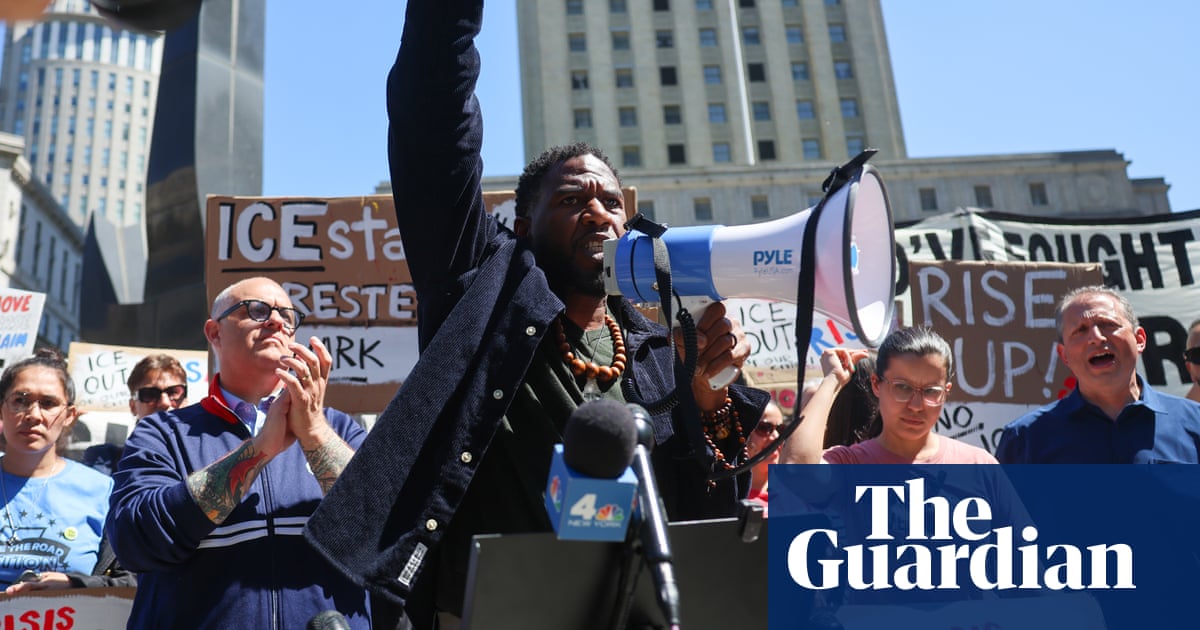Newark Mayor Ras Baraka Fights Back Against ICE Detention Center
The ongoing battle between local authorities and the Trump administration over illegal immigration has found a prominent figure in Newark Mayor Ras Baraka. His recent arrest during a protest highlights the escalating tensions around immigration policies, particularly concerning the controversial new Immigration and Customs Enforcement (ICE) detention facility in Newark, known as Delaney Hall.
The Arrest and Aftermath
On Friday, Ras Baraka joined three members of Congress in a protest and press conference against the construction of Delaney Hall. This facility, which boasts a capacity of 1,000 beds, has faced significant opposition from Baraka and local activists due to concerns over building permit violations and its implications for human rights. During the protest, Baraka was arrested and charged with trespassing, only to be released five hours later. His commitment to the cause, however, remains unwavering.
In an interview with MSNBC’s Rev. Al Sharpton, Baraka made it clear: “This doesn’t stop the city’s contention with the Geo Group, and we’re going to continue in court with them.” The Geo Group is the company responsible for managing the detention facility.
Community Concerns About Delaney Hall
Baraka’s resistance to the ICE detention center stems from broader community worries about its impact. Critics argue that facilities like Delaney Hall perpetuate a cycle of fear and uncertainty in immigrant communities. The detention of individuals, often without the opportunity for proper legal representation, raises ethical questions about the rights of immigrants.
Furthermore, the mayor has pointed to building permit issues as a significant concern. His argument hinges on the idea that the facility should not have been allowed to open given these violations, positioning the fight against Delaney Hall not just as a political standoff but as a legal one.
Continued Activism and Legal Battle
Baraka is not alone in this struggle. His statements reflect a growing coalition of activists, lawyers, and politicians aiming to challenge the legitimacy and morality of ICE operations in their communities. Many are joining in planned protests, emphasizing the need for continued resistance against what they view as unjust detention practices.
The planned legal battles will center around not only the permits granted for the facility’s construction but also the broader implications of ICE operations in immigrant communities across the country. Baraka’s commitment to this cause suggests a prolonged fight that could involve various legal frameworks, as well as public opinion and advocacy campaigns.
Broader Context of Immigration Policy
The skirmish over Delaney Hall is emblematic of larger national debates surrounding immigration policy during the Trump administration. As local leaders like Baraka confront federal policies perceived as harsh or unjust, questions about the treatment of immigrants, civil rights, and community safety come to the forefront.
These dynamics are complicated further by current events, including a recent federal judge’s ruling that temporarily halted mass layoffs planned by the Trump administration, demonstrating a judiciary willing to check executive power. Baraka’s fight against the detention center adds another layer to the ongoing narrative of local versus federal authority.
Public Support and Polarization
Public opinion on issues related to immigration tends to be polarized, with significant segments of the population supporting tougher restrictions, while others advocate for humane treatment and the protection of immigrant rights. Baraka’s efforts have attracted both praise and criticism, reflecting the deep divisions within American society over these matters.
As Newark grapples with its identity and values in the face of this contentious issue, the city stands as a microcosm of the national debate on immigration, human rights, and the role of government in the lives of its citizens.
Ultimately, Ras Baraka’s bold stance against Delaney Hall and ICE operations signals a commitment to advocating for a more equitable system for immigrants, illuminating the challenges and triumphs that accompany such an arduous struggle.


